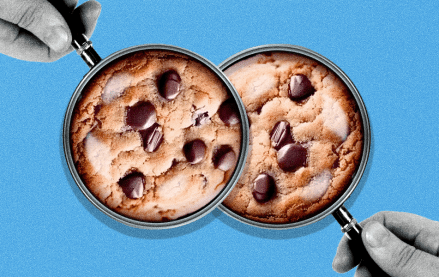
Keith Rivers is founder of the video creative and production agency Workhouse Creative
Advertisers have reached a tipping point with the sheer amount of products they shove into the faces of consumers on a daily basis. The advertising landscape is more like a landfill, each new offering toppling over the last on a heap of noise engineered to sell stuff.
Indeed, advertisers around the globe are expected to spend $592.4 billion in 2015, a 6 percent increase over last year. The average consumer is estimated to have been exposed to as many as 5,000 ads a day in 2015 alone. Imagine what these numbers will look like by 2020. This presents a major challenge for brands, especially as they seek to become less branded and more human. Brands must decide whether they want to — or if they even can — create content that doesn’t need to be measured by its affect on a company’s revenue stream. And lastly, if they’re not selling a product, then they need to communicate the idea or feeling they’re selling.
The common denominator: What matters is people.
In order to build trust, brands need to stop pushing products on people and start caring about, well, people. Human beings want a brand that thinks they matter and will vow to make a difference in their lives and others.
Here’s how they need to do it:
Stop selling
What a brand stands behind is more important than what they sell, that’s why most brands are veering away from pushing their product and instead pulling you into what they believe. For example, Always’ “Like a Girl” campaign builds on the brand’s core principles of empowering women. The ad resonated with consumers because it repositioned the brand’s moral choices by telling us something that mattered. It represented femininity on screen — and it shifted our perception of Always. The ad has nearly 60 million views on YouTube and dozens of accolades from ad industry experts.
First, listen and then empathize
Naturally, when telling a story, you must understand your audience and then share their feelings back to them. Your tone, language and even the content must mirror the way your audience feels. One campaign that really excelled at targeting their audience was Save the Children’s “Most Shocking Second Day Video.” They highlighted a little girl’s life in the U.K. slowly devolving through a montage that eventually imagines how her life would look if she were a typical little girl in Syria.
It is essential to listen to your audience and then empathize with them. Whether it’s through anecdotal conversations on social, word of mouth, or focus groups, the efforts have to be genuine. Understanding what audiences need, like, dislike, and value are the seeds towards listening and empathy.
Then, respond with authenticity
No matter the message, positive or negative, brands must trust that their audiences are as smart as they are. No longer can you distract your audience by treating them like a 1-year-old; you have to face them head on, and respond using thoughtful, honest messages. Earning an audience is no longer instantaneous; it requires delayed gratification and integrity. Consumers want to get behind brands that put them before their profit margins.
In an ideal world we would be surrounded with great advertising with an honest philosophy like Coca Cola’s It’s Beautiful, Chipotle’s Back to the Start, or Bing’s Heroic Women. More than ever, we see small storytelling opportunities turn into big conversation starters that allow brands to create more meaningful content, reveal their true voice, convey their principles, and even apologize or start anew.
So brands, say something that’s true to your audience — and say it boldly, and be honest. You’ll stand out from the crowd and you’ll share something unique and important with the world.
More in Marketing

With the introduction of video ads and e-commerce, Roblox looks to attain platform status
Roblox is expanding into more areas than just ads in 2024. Much like platforms such as Amazon and Facebook have transcended their origins to evolve from their origins as online marketplaces and social media channels, Roblox is in the midst of a transformation into a platform for all elements of users’ virtual lives.

PepsiCo wants to remain a ‘driver of culture’ as it turns to influencers and activations amid rebrand
The soda-maker says it can translate cultural relevance into sales volume.

‘It hasn’t changed our plans’: Despite Google’s cookie setback, Vodafone presses forward in search for alternatives
Vodafone is working with Adform in its search for alternatives to third-party cookies.





